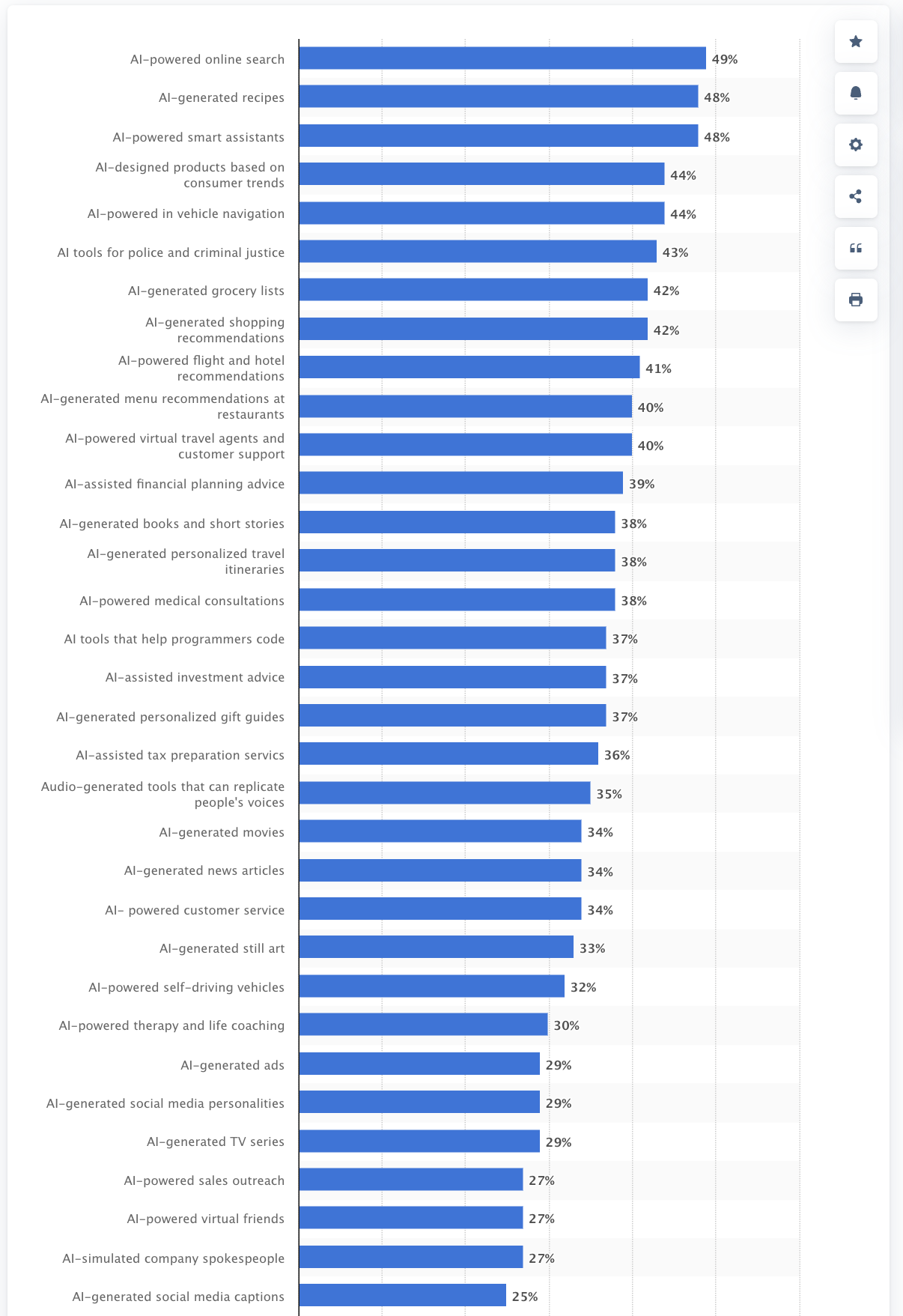Local Memo: Google Tests AI Search with the General Public
In this week’s update, learn about Google’s rollout of generative AI in search; Sam Altman’s views on the search engine of the future; why localization is crucial to online marketing; and how to use AI for SEO.
Google Tests AI Search with the General Public
A subset of U.S. users who have not opted in to Search Generative Experience (SGE) will see AI results in search, according to a statement from Google. The news comes less than a year from last May’s launch of SGE as a Google Labs experiment that adds an AI “snapshot” to the top of the search result for users who have opted in.
The AI results the broader public sees will be focused on responses to informational queries where Google thinks information collected from a range of sites will be helpful. The company says they are interested in collecting feedback on these results from a larger user base.
Though the test is limited, the news is significant in that it represents the first move on Google’s part to bring a generative AI user experience to the general public. Brands are particularly at risk in having their online presence impacted by AI generated results, according to research findings.
Sam Altman Imagines an AI Future for Search
In an interview summarized by Greg Sterling, OpenAI CEO Sam Altman expressed his opinion that LLMs could be used to reinvent search in a way that does not rely on the Google model. He imagines a new synthesis of AI capabilities with search that is not merely a copy of Google but rather introduces a “much better way to help people find and act on and synthesize information.” Altman seems to favor a model that is less reliant on ads and instead asks users to pay for access, suggesting this will remove bias.
Why Localization Is Crucial to Online Marketing
A detailed post on the Moz blog from Myriam Jessier explains that localization is critical for brands who want to appeal to consumers in specific geographic markets. For Jessier, localization is a matter of appealing to the cognitive bias towards familiarity; she cites the example of McDonald’s offering pineapple in Hawaii and beer in Paris.
Jessier lists several factors that should be considered by brands who want to appeal to consumers in local markets. These include content that is relevant to each market; location-specific images; analysis of regional competitors; localized keyword research; and avoidance of “blanket promotions that exclude certain regions.”
Though Jessier’s focus is more on localization in different countries, much of her advice serves equally well for brands who want to establish a relevant local presence in various U.S. markets.
A Big Guide to AI for SEO
Kristi Hines has a comprehensive guide in Search Engine Journal on the rise of AI for SEO. She notes that according to OpenAI, some 80% of Fortune 500 companies are using ChatGPT. Driven by the tool’s popularity and advancements in technology, AI is popping up in every search interface, not just Google but also Bing, Baidu, and upstarts like Brave, Naver, and Perplexity, some of whose innovations point toward a possible future where generative AI is deeply integrated in search.
More pertinently for brands, AI results should be examined in order to determine how best to optimize content to ensure it appears in answer to consumer questions. Hines points out that “soon, search engines may not be the primary way people discover content, research purchases, and find places to shop.” Indeed, a Statista survey shows that amongst U.S. consumers, the most desired AI product in a broad range of potential offerings is AI-powered online search.
Hines’s article contains a very broad range of references to AI tools that can be used to extend a brand’s voice through generative search experiences, custom chatbot interfaces, and more.
Results of survey of 2,205 U.S. consumers on the most desired AI products, courtesy Statista
Damian Rollison
Subscribe to Local Memo!
Signup to receive Local memo updates and the latest on localized marketing, delivered weekly to your inbox.
